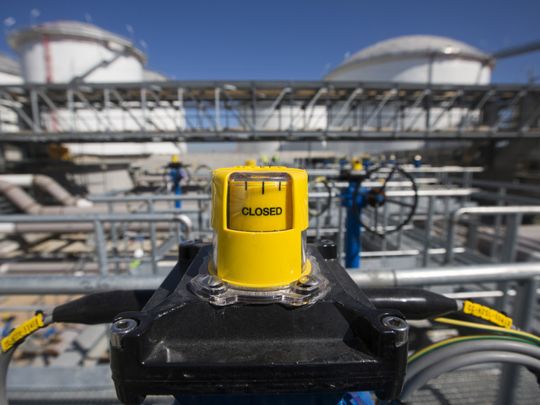
When the leaders of the 27 members of the European Union got together in the Romanian resort town of Sibiu last week, one of the main topics up for discussion — other than Brexit — was Cyprus.
The United Kingdom has an interest in Cyprus. The Mediterranean island nation used to be one of Britain’s possessions, but became independent in August 1960 and, to this day, the Brits still maintain military bases there at Atroriri and Dhekelia.
But last week, when the leaders of the EU discussed Cyprus, the UK wasn’t in the room — one of the consequences of Brexit and going your own way.
So why was Cyprus on the agenda?
Well, for starters, Turkey — who has been trying to get into the EU for the past three decades — has moved an oil and gas exploration vessel into waters that, as far as Brussels is concerned, belongs to the former British territory.
Under EU law and treaties, the Turks are drilling in Cyprus’ exclusive economic area. The Turks, for their part, insist they have a right to drill there and say the legitimacy stems from the fact that they recognise a small corner, seized by Turkish paratroopers in July 1974.
Talks to try and unite the divided island have been on and off for years, in part because Turkey was to keep its military stationed in the north, and Ankara points to the British bases in the south as being one of the reasons why a quid pro quo should remain.
The issue of Turkish drilling was raised at the summit by Cyprus President Nicos Anastasiades who told the other 26 leaders that it represented the biggest attack on his nation’s sovereign rights and territorial integrity in years. In short order the EU agreed, with European Council President Donald Tusk saying that the EU stands fully behind the government in Nicosia and that the bloc “expects Turkey to respect the sovereign rights of EU member states” and he promised the EU would continue to closely monitor the situation.
Back in London, the UK’s Foreign Secretary, Jeremy Hunt, added his two-pence worth. “This situation must be de-escalated and all parties show restraint,” he said, echoing Tusk’s concerns. “Hydrocarbons development should benefit all Cypriots and support a settlement.”
But it was just an echo, and goes to show how little clout Great Britain will have as a result of the Brexit referendum. For generations of Britons, those who have served in Cyprus as part of its military, those who have bought timeshare apartments there, or who have a fuzzy and warm memory of the size and strength of the Commonwealth at the start of the 1960s, Cyprus is almost as important as Gibraltar — on paper and in perceptions.
In politics, it doesn’t matter now, because the EU is calling the shots — just as the Tusk statement showed.
“Essentially, these actions are tantamount to a new invasion of Cyprus by Turkey after the tragic events of 1974,” the Cypriot president told his counterparts, adding that Turkey was “failing to live up to its obligations” as an aspirant EU member.
Reunifying the island
The waters around Cyprus have huge potential and have attracted the likes of ExxonMobil, France’s Total and Italy’s ENI. Sizeable natural gas deposits have so far been found in three offshore areas, and the government in Nicosia says that any future gas proceeds will be shared equitably with Turkish Cypriots after a deal is reached to reunify the island.
That seems reasonable — except that there’s little chance of any such deal happening anytime soon.
Cypriot authorities say the Turkish drillship Fatihis is anchored about 68 kilometres off the southwestern Cypriot town of Paphos and escorted by support ships and a Turkish navy frigate.
Turkey’s Foreign Minister Mevlut Cavusoglu says that Ankara was acting in accordance with international law and that a second drillship would be dispatched to the area.
With Britain sidelined at the EU level, Greece is standing firmly by its Cypriot neighbours, stressing that the issue was much more than a bilateral argument between the island nation and Turkey, but was one that went to the heart of the meaning of the EU itself. “Europe’s international geopolitical role cannot be credible if, first of all, it doesn’t ensure the adherence to international law within itself,” said Greek Prime Minister Alexis Tsipras. He wants the next gathering of the European leaders to look long and hard at the issue. That will take place in early June, after the European parliamentary elections at the end of May. And again, Britain won’t be at the table for all of London’s huffing and puffing about how important it is in a post-Brexit Europe.
What’s really galling for the frozen-out Brits now is that is the dawning of their new reality. At the summit, German Chancellor Angel Merkel got it, noting that Anastasiades had asked the EU “to represent Cyprus’ interests when there’s contact with Turkey. We will do so”.










